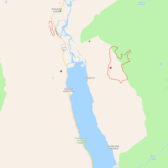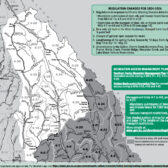Code of Conduct for regional district directors could come under review
The code of conduct to which all regional district directors adhere could come under some scrutiny in the new year.
The newest model of the Regional District of Central Kootenay (RDCK) board of directors moved earlier this month to direct its staff to begin a review of the Director’s Code of Conduct in accordance with the Community Charter requirements — to be brought back to the board in April.
“Given the considerable effort expended to develop the model code of conduct and responsible conduct training for elected officials and backed up by new legislated requirements for review the province is sending clear signals that local governments should take this matter seriously,” said Mike Morrison, RDCK manager of Corporate Administration and corporate officer, in his report to the board.
The RDCK had first adopted a Director’s Code of Conduct in 2016.
However, if it comes to pass, the policy review will entail an assessment of best practices from other local governments, as well as drawing upon information contained in the newly developed Model Code of Conduct from the Union of B.C. Municipalities.
Morrison said the current code for the RDCK was not an antiquated document.
“It must be noted that, despite the current policy being outdated and not completely aligned with the Model Code of Conduct, it does currently provide clear direction on conduct to directors,” he said in his report.
“Staff considers there is a low risk to the organization to retaining the current policy should the board decide not to direct the code of conduct review at this time.”
Consider the options
In November the province enacted the Municipal Affairs Statutes Amendment Act which introduces requirements to the Community Charter for local governments to consider either establishing a code of conduct or, where one may already be established, whether or not to review that Code of Conduct.
The notable requirements now included in the Community Charter and applicable the RDCK are as follows:
• Considering that the RDCK already has a code of conduct established, the board must decide within six months of the November inaugural meeting whether or not to review the code of conduct;
• The RDCK board is required to consider the prescribed principles for codes of conduct and other prescribed matters prior to making a decision on whether or not to review the code of conduct;
• If the RDCK board decides not to review the code of conduct, it must prepare a statement outlining the reasons for that decision; and
• If the RDCK board decides not to review the code of conduct, it must reconsider that decision in 2025 prior to the general elections in 2026.
Source: RDCK December agenda
As it stands
The current policy has many elements that could be altered if a review took place, including:
• the current policy is lengthy and prescribes specific actions, whereas the Model Code of Conduct is more concise and emphasizes adherence to principles rather than specific actions;
• the current policy tends to explain the reasons for a requirement, which may detract from emphasis on the requirement itself;
• the current policy repeats material already included in the oath of office, the RDCK procedures bylaw and legislation;
• the current policy does not adequately reference leadership and collaboration principles, which are core principles included in the Model Code of Conduct;
• the current policy does not include references to other RDCK policies that may be impactful to director conduct. Additional policy references are a proposed feature within the Model Code of Conduct; and
• the enforcement mechanisms within the current policy do not include several of the elements suggested within the Model Code of Conduct.
Source: Excerpt from RDCK December agenda



























